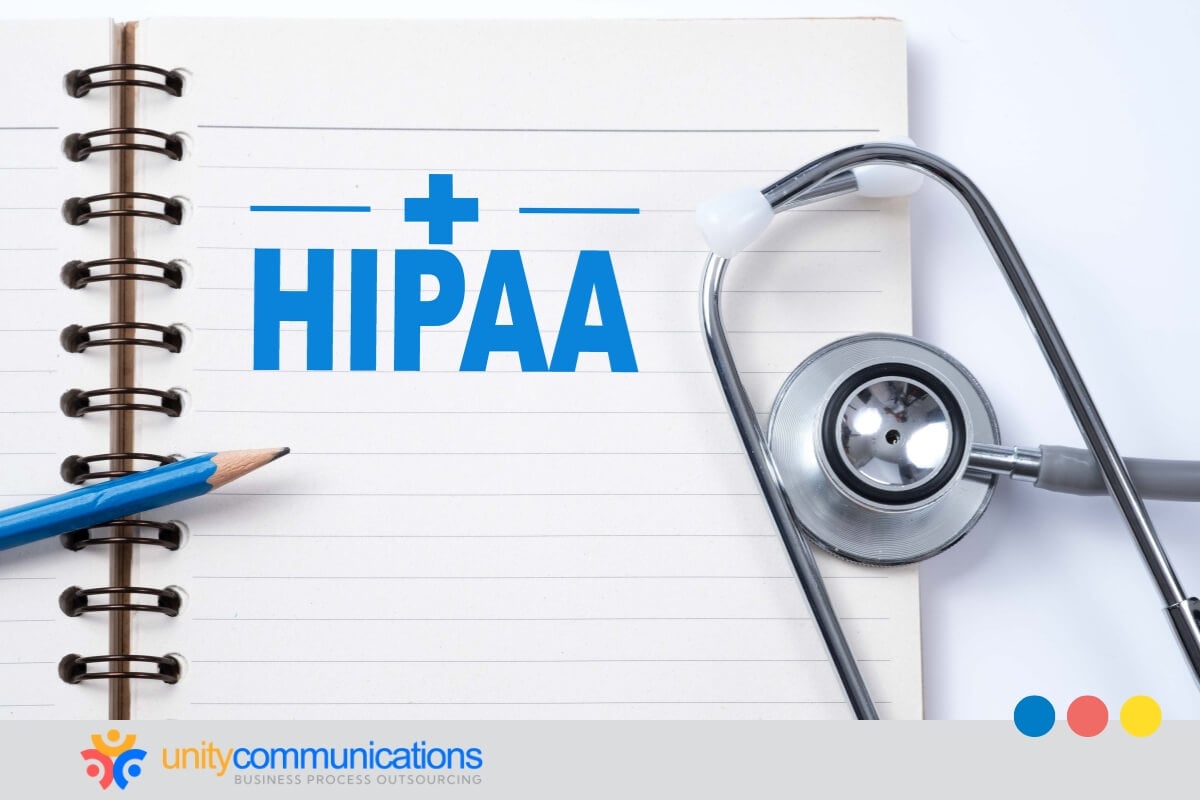Table of Contents
Healthcare providers must carefully manage resources to boost profitability. Maximizing opportunities for cost optimization and reallocation enables the delivery of consistent, high-quality patient care despite economic fluctuations.
Hiring a virtual medical assistant (VMA) offers significant cost savings by eliminating the need for full-time, in-house employment benefits such as health coverage and paid leave.
VMAs provide a flexible staffing solution, allowing healthcare practices to scale support, use resources efficiently, and manage fluctuating patient needs. Read on to find out more about how businesses can improve cost savings and maintain high-quality care with virtual medical assistants.
Lowering payroll expenses

VMA services help healthcare providers significantly reduce payroll expenses by eliminating the expenses associated with hiring, training, and retaining full-time in-house staff. This approach allows practitioners to better manage their budgets and achieve cost savings while ensuring that virtual medical assistants handle administrative tasks efficiently.
Most virtual medical assistants are sourced through business process outsourcing (BPO) companies. But what is BPO? It involves contracting a third-party company to manage non-critical functions. Outsourcing administrative tasks in healthcare to BPO firms allows access to an external team of skilled and experienced VMAs.
BPO significantly cuts staffing costs and improves savings by providing virtual medical assistant services without the overhead expenses. It can also adjust support based on demand to avoid paying for underutilized in-house staff. As patient volume fluctuates, practices can quickly scale support to align staffing with current needs.
Understanding how outsourcing works helps providers appreciate the financial benefits and operational ease that VMAs and outsourcing bring to their practices. Healthcare providers can manage their resources more effectively and optimize operational efficiency and cost savings.
Reducing the need for office space and supplies
In BPO telemedicine, virtual medical assistants typically work either at the BPO firm’s office or their own homes. Their employers also provide them with the necessary equipment to manage outsourced tasks.
Thus, engaging VMAs through healthcare BPO services reduces the need for additional office space and associated overhead, such as utilities, supplies, and devices. With lower operating costs, healthcare practices can allocate more resources to other critical business aspects.
Streamlining workflows and reducing waste

Optimizing workflows in healthcare operations eliminates inefficiencies and minimizes unnecessary costs. With improved operational efficiency, healthcare providers can enhance patient care delivery and ensure effective resource utilization. These can lead to better outcomes and savings.
Virtual medical assistants can help healthcare practices optimize operations by streamlining administrative processes with established workflows. With administrative responsibilities managed externally, in-house staff can focus on more critical tasks such as patient care. VMA support also allows internal practitioners to be more productive.
For instance, administrative duties overwhelm a medical team, compromising operational efficiency and service quality. It hires a virtual assistant for Phoenix healthcare to manage appointment scheduling, billing and collections, and patient follow-ups. As a result, the in-house staff gains more time to accommodate patients.
However, choosing the right virtual assistant is essential to maximize the benefits of BPO services.
A competent VMA possesses the necessary skills to streamline operations. Furthermore, VMAs utilize automation and specialized software to increase efficiency. These technologies minimize the time and money wasted on manual processes and errors.
Here are examples of software that VMAs might use to improve efficiency and accelerate workflows:
- Electronic health records (EHR) systems. VMAs use tools such as Epic or Cerner to streamline patient record management and ensure accurate, up-to-date information.
- Appointment scheduling software. They utilize platforms such as Zocdoc or Calendly to automate scheduling, reminders, and cancellations, reducing administrative workload.
- Billing and coding software. Systems such as AdvancedMD or MediSoft help automate medical billing and coding processes for accurate and efficient claims processing.
- Practice management software. VMAs might use tools such as Athenahealth or NextGen to manage patient interactions, billing, and office workflows comprehensively.
- Telemedicine platforms. They might utilize software such as Doxy.me or Teladoc for remote consultations and follow-ups to minimize in-person visits, decrease waiting time, and optimize patient care.
Enhancing billing and collections
Effective billing and collections are crucial for maintaining medical practices’ financial health. VMA support is a valuable solution for improving these processes; providers can manage their finances more efficiently and reduce administrative burdens.
Virtual medical assistants code invoices and claims correctly to prevent delays. They also facilitate faster reimbursements from insurers and patients to improve cash flow and financial stability.
In the healthcare industry, VMAs process claims using specialized software and adhere to best practices. These strategies boost healthcare practices’ revenue cycle.
Saving costs through HIPAA compliance

Adherence to the Health Insurance Portability and Accountability Act of 1996 (HIPAA) is critical in optimizing costs and driving savings. HIPAA implements stringent regulations to protect patient privacy and maintain the confidentiality of sensitive health information.
Compliance with HIPAA regulations helps avoid legal penalties, which can range from $127 to $250,000, depending on the nature of the violation. It also reduces the risk of data breaches and associated recovery costs, such as patient notification, credit monitoring, and damage control. As of 2023, the average cost of a healthcare data breach was $4.45 million.
Virtual medical assistants help healthcare organizations with HIPAA compliance. They implement strict data privacy and security measures to maintain the integrity of patient information throughout the healthcare process in BPO.
The bottom line
Significant cost savings can be achieved by leveraging the expertise of third-party virtual medical assistants. They reduce expenses associated with hiring and retaining additional full-time staff while streamlining administrative processes and improving scalability.
VMAs also handle tasks such as appointment scheduling, billing, and patient follow-ups to help clinics and practitioners minimize waste and improve operational efficiency, allowing them to focus more on delivering quality patient care.
Healthcare practices seeking significant cost savings must consider engaging virtual medical assistants through BPO. This strategy ensures cost efficiency and long-term sustainability.
Let’s connect to learn how VMA support can be a cost-effective solution for enhancing operational and financial health. Unity Communications is a multi-awarded BPO provider with vast experience in the healthcare industry and related functions.




